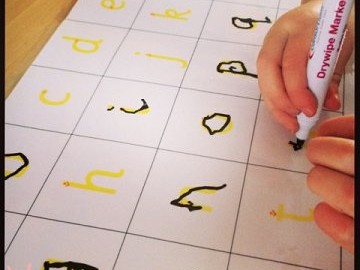When my son was diagnosed with Asperger’s Syndrome at aged 10 I never in a million years thought that I would be having to help him think about University. But he has come on so far in that time it really has been amazing. I shall not embarrass him by listing all the things he couldn’t do – I am sure if you are reading this you may already know yourself. But what now? Will he really be able to cope at University? Will he eaten enough, clean himself enough, not get into trouble with other people? Are these not the thoughts of any teenager about to fly the nest – is he really any different anymore?
The following information are things that I have gathered about disability in relation to my son with Asperger’s syndrome; there may be relevant information and links for other disabilities but obviously there is more to think about and this post may only be a starting point.
Going to University with Special Needs – UCAS
The first hurdle we are struggling with is UCAS. My husband and I did not go through UCAS when going to University it is our first time dealing with them. Of course communication is the first big issue here. I really am not sure whether our son is not being told the right information or not at all. He is not doing General Studies (timetable clash) and according to him there does not appear to be any way they are making up the fact that he is missing what they are being taught about UCAS forms. UCAS is the Universities and Colleges admissions services – basically he will need to fill out one of their forms saying which Universities he wants to go to. The deadline for UCAS is January 15th 2015 – my son just thinks I am being a pushy organised parent.
UCAS can be done online, and saved and tracked. There’s a 10 digit personal ID number – and this can be shared with people who help fill out the form. Some of the form can also be shared with the student finance company. Tuition fees loan can be borrowed regardless of family income/situation. 5 choices can be made. It costs £12 to apply for one course and £23 for two or more.
This will include a Personal Statement – that is talking about himself, selling himself telling the places why they should pick him to go on their course over anyone else. It has to be a minimum of 1,000 characters This in itself is proving difficult as it is hard to get him to do anything to put on the statement, and also because things are so black and white he does not understand the whole, because I can do x then y. For example, when applying for a job as a lifeguard he put that he could swim a length under water and knew how to deal with children. To him these were the qualities he had to be a lifeguard. They said this wasn’t enough. We then talked about how he was studying science and was therefore good at observing hazards – he did not see how that was related to being a lifeguard because the hazards were not the same.
Universities must make reasonable adjustments to account for the disability. Disclosing the disability can show evidence of character and achievement (see why you should disclose that you have a disability). This may be something like learning the ability to manage money, or that the disabled person has learnt to cook their own meals. This shows determination and using skills to sort things out.
Deciding on a University
The amount paid back each month for a Student Loan will be the same whether the tuition fees are 6,000 as they are 9,000 (a year). Institutions that charge more than 6,000 in tuition fees have to put in place measures to help students from poorer backgrounds. Waivers and Bursaries – if there’s an option then it is better to have the Bursary as it is more likely to be higher and meet the costs of the basic needs. UCAS has a guide on helping disabled students find the right course for them.
Students with Asperger’s are likely more difficulties socially and with life skills. These may include understanding and processing language, sensory issues, diet/fussy eaters, working in groups, struggle with changes to routines, independent study, taking things literally, understanding jokes, and so on. So it is pleasing to hear that several Universities are offering summer schools to help those with Asperger’s adapt (including Birmingham, Bath, Cambridge and Aberystwyth.
Open Days
It is best to attend the Institutions before putting them down on the form. Have a look on their websites for when they are holding their open days. Some will require you to book them in advanced, others you just turn up on the day.
The Course:Selecting the place of study will depend on what you want to study. Check out the league tables to see which are the highest rated, and what others are saying about it. Think about whether future employers will be influenced by the institution choice. Depending on the course some careers are determined by health and have rules called ‘fitness to practice’ set by professional bodies to ensure people can do the job – this does not mean disabled people are automatically ruled out though. Does the course require an admission test to be sat? The disability officer (see below) can help with this. Tutors can provide advice on the course options -what mix of lectures, number of assignments, seminars there are.
The Requirements: Make sure you have enough UCAS points to secure a place, and see what typically they accept. Just because there isn’t enough UCAS points does not mean that a place cannot be obtained. If the offers received are not taken or none are given then students can go through Extra. From February 24th courses with vacancies can be applied for, and the personal statement can be amended. Then if no offers in June then they can go through clearing.
The Location: Is the place near to home. Therefore, all the support of living at home is still available. If moving away think about the accommodation and any additional difficulties that may need extra help.
The Support: Each University will have a student support or Disability Officer. Speak with them to determine what additional help can be provided. They will be able to advise you on whether they could provide support/help/advice to meet needs. This might be just someone to meet with once a week to talk about academic/care/financial needs – so have a think about what it is that needs additional support. If contact is made before the open day then it gives the disability officer a chance to find other disabled students wanting to do the same course, and/or those already on the course to be able to meet up with. I think this also will give an indication as to what level of support the disability officer is likely to provide. This may give an insight into other difficulties that may be incurred that had not been thought of. Social services can also be involved to help with personal care needs.
Financial help for Disabled Students
All students are able to apply for loans for tuition and living costs. On top of this there is the Disabled Students Allowance – The support depends on individual needs and not income. It’s paid on top of other student financial income and does not have to be repaid. This can be up to a maximum of £27, 678 for the academic year 2015-2016 (most students get less). They do not cover disabled costs that would be incurred if not attending the course, or that any student may have. Things covered would include specialist equipment, non-medical helpers, extra helpers, and costs related to the course/disability. Cuts have been proposed for 2015 that DSA will be only be given for specific learning difficulties if their needs are considered complex. It will no longer pay for standard computers for disabled students or note-takers and learning mentors.
The University will also have a hardship fund – for those experiencing financial hardship – one of the examples is if the student is disabled.
Other Sources of help for Disabled Students
This is, of course, lots more to consider such as insurance, helping them become independent (cooking/budget, etc), accommodation etc. If anyone has any support information on going to University then I would really appreciate it – disability or non-disability related. And if you or your child are thinking about it then the very best of luck to them.
This is NOT a sponsored post.







